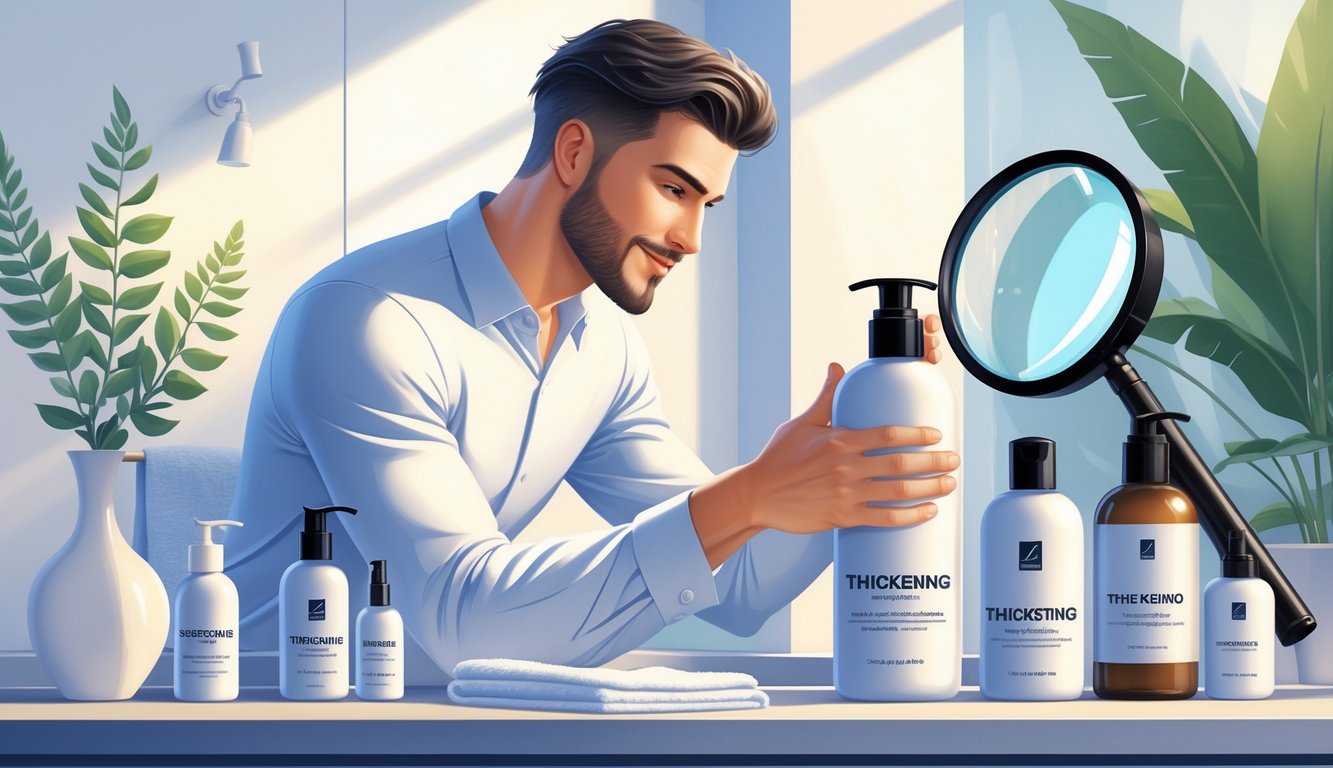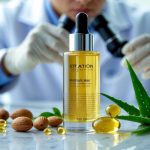
So, thickening shampoo. Let’s just admit most of us picture some neon-green bottle from the ‘90s, reeking of cheap cologne and promising hair like a Marvel superhero. I used to think it was all a joke, honestly. But then I watched my old roommate—guy was losing hair by the handful—try some biotin-and-caffeine thing, and suddenly his shower drain wasn’t a crime scene. Wild. Dermatologists, if you corner them, will nudge you toward protein-heavy, volumizing stuff like Diametress Volumizing Shampoo. Not because of marketing, but because, apparently, it actually does something if you use it long enough. Don’t ask me to explain the science—I just read the studies and squint.
Nobody ever talks about that moment you’re staring at your own thinning hair, while some influencer is out here raving about sea kelp. Tried it. My scalp wasn’t impressed. When I hassled five doctors and a hairstylist (I’m persistent, okay?), they all kept repeating “keratin” and “saw palmetto” like a broken record. Not exactly what you find in the two-for-one aisle. And, side note, does anyone else notice how GQ and Esquire just recycle the same brands? Are these editors actually using the products or just cashing a check? I’ll never know.
What really fries my brain is the advice ping-pong. Do you just buy Kiehl’s Ultimate Thickening Shampoo and hope for the best, or is your hair secretly craving niacin or minerals with names I can’t pronounce? One dermatologist told me sulfate-free is pointless unless you’re sensitive—wish I’d heard that before I wasted money on “gentle” shampoo that did nothing. There’s no magic here. Just a mess of claims and a few nuggets of actual advice, if you dig deep enough.
Why Hair Thinning and Hair Loss Happen in Men
Here’s what’s nuts: every guy I know panics about going bald, and I’m supposed to have the answers? I barely remember the difference between androgenic alopecia and “just stressed out.” Dr. Shapiro once muttered about DHT blockers while microwaving his breakfast. That stuck. Basically, it’s genes, hormones, and a stress cocktail nobody can actually diagnose. Seriously, even the people selling these shampoos seem confused.
Common Causes of Male Hair Thinning
I once stared at a chart that said a quarter of guys under 35 already see thinning. Twenty-five percent! It’s never just one thing. Maybe you switched shampoos and your scalp rebelled (peppermint, never again), or maybe you wore that beanie all winter and now your hairline’s waving goodbye. Most of the time, it’s a mashup: stress, dandruff, garbage diet—probably missing vitamin D or iron and nobody tells you until you’re already halfway bald. Oh, and if you smoke? Good luck. I’ve seen it. Hair literally gets thinner, strand by strand, when follicles hit fast-forward or just go on strike. That’s textbook, not TikTok.
People love to blame their shampoo, or the water in their apartment. Sure, maybe hard water is sabotaging your dreams, but let’s be real: chronic scalp issues (seborrheic dermatitis, psoriasis, whatever) speed up the process. Thickening shampoos? At best, they buy you time. That’s it.
Genetics and Male Pattern Baldness
You can eat kale, meditate, and use every serum on earth, but if baldness is in your family, forget it. “Androgenetic alopecia”—that’s the phrase dermatologists throw around like confetti. If your dad or grandpa had that classic U-shaped hairline, you’re probably next. Not just your mom’s side, by the way. That rumor needs to die.
Genetic counselors basically roll their eyes at the whole “mother’s father” myth. Truth is, there are a ton of genes involved—2022 guidelines said six chromosomes, dozens of loci. So no, you can’t just get a DNA test and know your fate. You’ll get a probability and maybe a prescription for minoxidil if you catch it early.
If you hear “male-pattern baldness,” know this: trichoscopy (that’s the scalp microscope thing) shows follicles shrinking, not just hair falling out. Sometimes it skips a generation, sometimes it’s just the crown. My dentist claims switching shampoos reversed his hair loss. Absolutely not. He’s still bald.
Hormones and Dihydrotestosterone (DHT)
DHT. Ugh. Every dermatologist groans when you bring it up. Everyone wants to block it, but it’s not that simple. DHT is normal, but some guys’ follicles freak out when exposed to it. The enzyme 5-alpha-reductase turns testosterone into DHT, which then miniaturizes hair. Eventually, thick hair turns fuzzy and vanishes.
I’ve seen guys on finasteride (the prescription DHT-blocker) literally chart their hair counts in Excel. Some get results—like, 87% slow down hair loss—but nobody’s regrowing a full mane. Side effects? Maybe. Some guys don’t care, some panic and quit. Now every shampoo brand throws in “natural DHT blockers” like saw palmetto or caffeine, but dermatologists keep saying, “Don’t kid yourself. Pills do more.”
Hormones are chaos. Some dudes keep every hair into old age, others start balding in high school. No shampoo is fixing that. Not even the ones with fancy oils and three-step routines.
How Thickening Shampoos Work
Let’s be honest: my hair always looks thickest after a sweaty gym shower, not after dropping $30 on a “miracle” shampoo. Every thickening shampoo for men—drugstore, luxury, whatever—is basically selling hope in a bottle. But, if you dig through the hype, there are real ingredients doing real (small) things. Sodium something-or-other, mostly.
Key Ingredients That Boost Hair Thickness
Every bottle screams “volumizing” or “thickening.” The ingredient that actually matters? Panthenol (Vitamin B5). Not sexy, not new, but dermatologists keep bringing it up. Saw palmetto is everywhere now, and caffeine—because apparently, our hair needs to wake up too.
Other stuff like biotin, niacin, and wheat proteins? They don’t regrow hair, but they do make what you have feel stronger. Hydrolyzed keratin is my personal favorite, since it fills in the cracks. But half the brands push argan oil, which is nice for shine but doesn’t do squat for thickness.
Mechanisms of Action for Thickening Formulas
Here’s where people stop reading. Shampoos only touch your scalp for a minute. Still, the right surfactants (like sodium laureth sulfate or its friendlier cousins) clear out gunk so hair looks less limp. Don’t expect miracles, but less grease means your hair isn’t getting smothered.
Some brands add microfibres or cellulose to fake volume. You’ll see a thicker strand—until you sweat or sleep on it. I tried a quinoa-extract formula once and my stylist swore my hair felt “full,” but honestly, humidity has a bigger effect. Even dermatologists admit the results are temporary. Nobody’s waking up with new hair density.
The Role of Volumizing Agents
Volumizing shampoo, thickening shampoo—my brother just grabs whatever’s on sale. There’s a real difference, though: polymers like polyquaternium-7 or PVP stick to your hair, then plump it up as it dries. Skip conditioner and you’ll see even more lift, but then you’ll be scratching your scalp by noon.
Sometimes brands throw in clay or texturizers for extra grit. You get a boost, sure, but lose it the second you put on a hat. Nobody tells you that. And those polymers can make your hair repel oil, so sometimes day-two hair looks better, sometimes it’s just static city.



